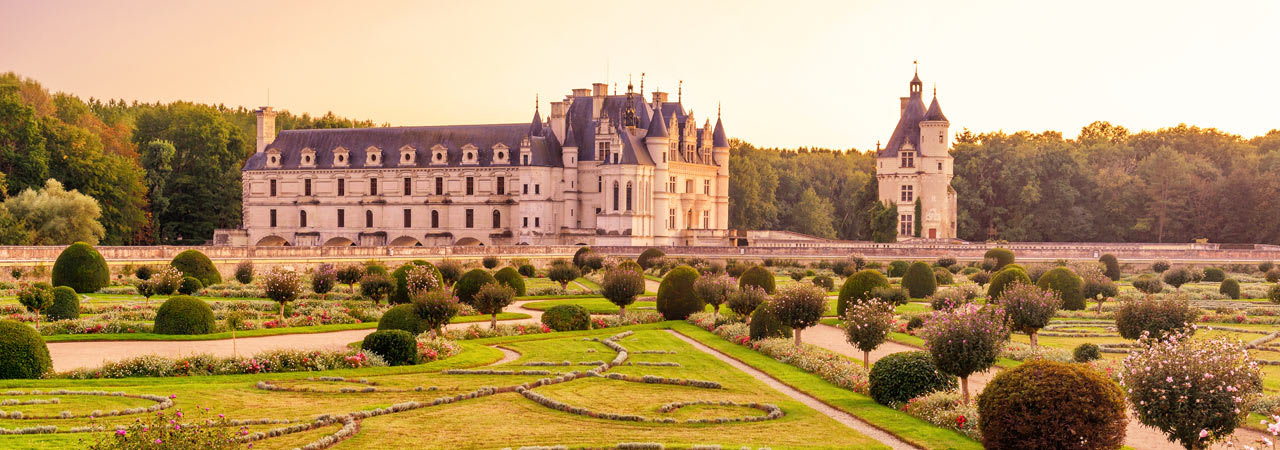
French Chateau For Sale
Full Personal Service
Over 20 years experience in the area.
We give Expert Buyers Advice, from Enquiry to Purchase
Entire Market
We offer access to 99.9% of the local property market including off-market options
Free Service
Free advice and property finding service for buyers
Included Extras
Organisation of visits, legal advice, currency guidance, continued support after purchase, and more
Contact Us
Please call +44 (0) 1935 817 188 to speak with our professional sales team.
Business Hours
Monday to Friday 09.30 AM to 5.30 PM GMT
Living the dream of owning a large, spectacular and historic building in many countries can often be somewhat difficult to realise. Not so, France. Almost every department has its share of imposing tower-topped chateaux dominating the landscape, if no longer the people. From long-forgotten manorial houses to the very largest monastic and secular palaces, a French chateau offers a vision of mystique and romance that perhaps the more solidly defensive English castles cannot touch.
Why buy a French Chateau?
At present, large estates are offering superb value for money compared to other prestige property around the world. Boasting acres of land, lakes, outbuildings and their own capacious floor spaces, a French chateau gives one the opportunity and space to choose how to live and work. Taking the figure of 1 Million Euros as an example, a French chateau costing this will far outweigh, in real terms, the real estate offered by other luxury and prestige property of the same price. In many locations, you are paying for exactly that - location - and will no doubt be jostling with other similar properties for the best view. A French chateau offers the rare ability to look out from your window and survey no land but your own.
The rise in disposable income and the freedom to travel between countries ensures that there is strong interest in buying such property for a family home or a tourism business - perhaps for fishing, an equestrian school, hunting, outdoor sports, walking or wildlife watching. The fairytale bulk of a French chateau is also one of its main attractions, particularly for weddings or hotel accommodation. What bride would not wish to be married within an ancient chapel bathed by soft light streaming through its stained glass windows, then withdraw across the lawn to the main building with its ornate decoration a background to the big day and the sounds of history echoing from its walls?
Many such properties also have existing income from timber or wine production.
French chateau types
If you are looking to buy a French chateau, be it for pleasure or business, we have many beautiful properties to choose from with prices of approximately 300,000 EUR to over 20 Million EUR. These properties take many forms, from smaller Logis and manor houses to fortified farmsteads and enormous stately homes encompassing many hectares of land with woods, lakes, guest houses and outbuildings.
A chateau, because of its size and history, usually has over 1 hectare of land - usually this is much more, even with lower budget examples. While there is a limited supply of French chateaux that are up for sale at any given time, there is likely to be a great variety. You may wish to buy a large building with little land to make your money go further. Or you may wish to buy a smaller Logis-style property, but utilise the land for horses, hunting or wildlife. However, there are many examples of chateaux for sale on the market with a large floor space and several dozen hectares, but they are understandably more expensive but not overly so. 1 million EUR can easily buy you 500m2 of floor space on several levels plus 20 hectares of land.
Whether a chateau dates from the 10th or 20th century, it will have its own style and history of decoration. Some can be a mix of styles from different periods as fashion and the owner's availability of funds changed. Other examples of French chateaux appear not to have changed since they were built. Many were built in the early 19th century as France became more dominant and wealthy. There are similarities between properties in that you are likely to find original features such as stone fireplace, parquet flooring, mouldings and carvings dotted around the rooms.
Where to buy a French chateau for sale
You can buy a French chateau in all states of preservation; from windowless shells requiring total renovation, to those requiring part-decoration, to immaculate 19th century bourgeois stately homes, the amount you will need to spend will depend on how much work you are willing to undertake. Being large properties, renovations can be very costly and time-consuming but need not be outside the budget of most serious buyers if planned correctly. Typically, to arrive at a habitable building you will need to spend around a total of around 500,000 Euros, whether you opt to renovate or buy an already renovated example.
Obviously, the more you spend to begin with, the larger the chateau, outbuildings and land you will acquire. While not always true, like most things it is usually sound advice to spend more at the outset to buy a good example than spend money creating one. In other words, it is better to let the previous owner use their money and time!
Our portfolio includes a great selection of French chateaux for sale in many areas of France. The Loire valley and the nearby departments offer particularly good investment opportunities for the chateau property buyer and we have over 30 examples in the Indre-et-Loire, Loir et Cher, Indre, Maine et Loire and Seine et Marne alone. Other good 'populations' exist in the Parisian departments and the south east, south west and north east areas of France. The market is remarkably fluid below 1.5 Million euros, with highly desirable properties changing hands within weeks of being offered for sale. This compares favourably with other prestige markets with regards to 'on-market' times.
1. Signing the Agreement (Compris)
On finding a property you wish to purchase you will need to negotiate the terms, price and conditions of the sale with the owner.
The next step, once you are in agreement, is to sign the preliminary contract (Compromis de Vente). This is a legal document and after ten days will be binding on both parties. Rules change frequently in France and it is best to consult with your notary about when this period starts. Generally the compris will be signed in France with the Agent.
Variants can be included in the compris, for example an Acte (clause) can be added if the name or names to go on the title deed have not been finalised. If a mortgage will be required to purchase the property, the details for this, including the name of the mortgage company, must be on the compris.
2. Paying the Deposit
Generally the deposit will be 10% of the agreed purchase price. This will normally be paid to the notaire. There are exceptions to this, if the agent holds a carte professionelle, is bonded and fully registered then you may pay them, but do not hand over the deposit to anyone else. If for some reason the purchase does not go through, for example, if you write to the notaire and the agent that you do not wish to go continue with the purchase before the contract is binding (within seven days of signing the compris), then your deposit would be repaid. This would also apply if a condition had not been met, or the mayor or S.A.F.E.R. (a government agency that has the right of first purchase on most rural property that comes onto the market in France) could oblige the purchaser to give way. If you decide after the seven days 'cooling off' period that you do not wish to complete the purchase and pull out of the sale you would lose your deposit. If however the vendor pulls out of the sale then you will receive your deposit back plus the same amount from the vendor.
3. On Completion
Generally it will take around two or three months to complete the purchase.
During this time the balance of the purchase money must be paid into the account of the notaire, this must be done well ahead of the completion date. The notaire will prepare the documents, check that the deed of sale (Acte de Vente) is in order and have the legal title ready to be signed over. It is possible to have someone sign on your behalf if you give them power of attorney. An interpreter may be of use at this point if your French is not very good and many Notaires will suggest (or insist) that an interpreter is with you.
IMPORTANT - Disclaimer :
All information provided is believed to be current and provided free of charge. No liability can be accepted for the reliability of the information and statements made as this is obtained from 3rd parties. We always recommend you take legal advice from a fully qualified Lawyer or Notary before buying a property overseas.
No properties were found that match those exact search options.
Please amend your search options to view further properties.


 Facebook
Facebook Twitter
Twitter Instagram
Instagram